February 10, 2011
To stay on top of important articles like these, sign up to receive the latest updates from TomDispatch.com here. Editor's Note: The Obama administration came into office proclaiming "sunshine" policies. When some of the U.S. government's dirty laundry was laid out in the bright light of day by WikiLeaks, however, its officials responded in a knee-jerk, punitive manner in the case of Bradley Manning, now in extreme isolation in a Marine brig in Quantico, Virginia. The urge of the Obama administration and the U.S. military to break his will, to crush him, is unsettling, to say the least. Whatever happens to Julian Assange or WikiLeaks, Washington is clearly intent on destroying this young Army private and then putting him away until hell freezes over.
It should not be this way.
Today, thanks to lawyer and essayist Chase Madar, TomDispatch is making a long-planned gesture towards Manning, whose acts, aimed at revealing the worst this country had to offer in recent years, will someday make him a genuine American hero -- but that’s undoubtedly little consolation to him now. When it comes to America’s recent wars, its torture regimes, black sites, and extraordinary renditions, as well as the death and destruction visited on distant lands, blood is on many official American hands, but not on Manning’s. Those officials should be held accountable, not him.
With that in mind, TomDispatch offers its version of the defense of Bradley Manning. -- Tom Engelhardt
An Opening Statement for the Defense of Private Mannin
Bradley Manning, a 23-year-old from Crescent, Oklahoma, enlisted in the U.S. military in 2007 to give something back to his country and, he hoped, the world.
For the past seven months, Army Private First Class Manning has been held in solitary confinement in the Marine Corps brig in Quantico, Virginia. Twenty-five thousand other Americans are also in prolonged solitary confinement, but the conditions of Manning’s pre-trial detention have been sufficiently brutal for the United Nation’s Special Rapporteur on Torture to announce an investigation.
Pfc. Manning is alleged to have obtained documents, both classified and unclassified, from the Department of Defense and the State Department via the Internet and provided them to WikiLeaks. (That “alleged” is important because the federal informant who fingered Manning, Adrian Lamo, is a felon convicted of computer-hacking crimes. He was also involuntarily committed to a psychiatric institution in the month before he leveled his accusation. All of this makes him a less than reliable witness.) At any rate, the records allegedly downloaded by Manning revealed clear instances of war crimes committed by U.S. troops in Iraq and Afghanistan, widespread torture committed by the Iraqi authorities with the full knowledge of the U.S. military, previously unknown estimates of the number of Iraqi civilians killed at U.S. military checkpoints, and the massive Iraqi civilian death toll caused by the American invasion.
For bringing to light this critical but long-suppressed information, Pfc. Manning has been treated not as a whistleblower, but as a criminal and a spy. He is charged with violating not only Army regulations but also the Espionage Act of 1917, making him the fifth American to be charged under the act for leaking classified documents to the media. A court-martial will likely be convened in the spring or summer.
Politicians have called for Manning’s head, sometimes literally. And yet a strong legal defense for Pfc. Manning is not difficult to envision. Despite many remaining questions of fact, a legal defense can already be sketched out. What follows is an “opening statement” for the defense. It does not attempt to argue individual points of law in any exhaustive way. Rather, like any opening statement, it is an overview of the vital legal (and political) issues at stake, intended for an audience of ordinary citizens, not Judge Advocate General lawyers.
After all, it is the court of public opinion that ultimately decides what a government can and cannot get away with, legally or otherwise.
Opening Statement for the Defense of Bradley Manning, Soldier and Patriot
U.S. Army Private First Class Bradley Manning has done his duty. He has witnessed serious violations of the American military’s Uniform Code of Military Justice, violations of the rules in U.S. Army Field Manual 27-10, and violations of international law. He has brought these wrongdoings to light out of a profound sense of duty to his country, as a citizen and a soldier, and his patriotism has cost him dearly.
In 2005, General Peter Pace, Chairman of the Joint Chiefs of Staff, told reporters: “It is absolutely the responsibility of every U.S. service member [in Iraq], if they see inhumane treatment being conducted, to try to stop it.” This, in other words, was the obligation of every U.S. service member in Operation Iraqi Freedom; this remains the obligation of every U.S. service member in Operation Enduring Freedom in Afghanistan. It is a duty that Pfc. Manning has fulfilled.
Who is Pfc. Bradley Manning? He is a 23-year-old Private First Class in the U.S. Army. He was raised in Crescent, Oklahoma (population 1,281, according to the last census count). He enlisted in 2007. “He was basically really into America,” says a hometown friend. “He was proud of our successes as a country. He valued our freedom, but probably our economic freedom the most. I think he saw the U.S. as a force for good in the world.”
When Bradley Manning deployed to Iraq in October 2009, he thought that he’d be helping the Iraqi people build a free society after the long nightmare of Saddam Hussein. What he witnessed firsthand was quite another matter.
He soon found himself helping the Iraqi authorities detain civilians for distributing “anti-Iraqi literature” -- which turned out to be an investigative report into financial corruption in their own government entitled “Where does the money go?” The penalty for this “crime” in Iraq was not a slap on the wrist. Imprisonment and torture, as well as systematic abuse of prisoners, are widespread in the new Iraq. From the military’s own Sigacts (Significant Actions) reports, we have a multitude of credible accounts of Iraqi police and soldiers shooting prisoners, beating them to death, pulling out fingernails or teeth, cutting off fingers, burning with acid, torturing with electric shocks or the use of suffocation, and various kinds of sexual abuse including sodomization with gun barrels and forcing prisoners to perform sexual acts on guards and each other.
Manning had more than adequate reason to be concerned about handing over Iraqi citizens for likely torture simply for producing pamphlets about corruption in a government notorious for its corruptness.
Like any good soldier, Manning immediately took these concerns up the chain of command. And how did his superiors respond? His commanding officer told him to “shut up” and get back to rounding up more prisoners for the Iraqi Federal Police to treat however they cared to.
Now, you have already heard what the Chairman of the Joint Chiefs of Staff had to say about an American soldier’s duties when confronted with the torture and abuse of prisoners. Ever since our country signed and ratified the Geneva Conventions and the Convention against Torture, it has been the law of our land that handing over prisoners to a body that will torture them is a war crime. Nevertheless, between early 2009 and August of last year, our military handed over thousands of prisoners to the Iraqi authorities, knowing full well what would happen to many of them.
The next time Pfc. Manning encountered evidence of war crimes, he took a different course of action.
On the Secret Internet Protocol Router Network (SIPRNet) shared by the Departments of Defense and State Manning soon found irrefutable evidence of possible war crimes, including a now-infamous “Collateral Murder” video in which a U.S. Apache helicopter mowed down some 18 civilians, including two Reuters journalists, on a street in Baghdad on July 12, 2007. The world has now seen and been shocked by this video which Reuters is alleged to have had in its possession but had not yet made public. Manning is alleged to have leaked it to the whistleblower site WikiLeaks in April 2010.
Manning also found a video and an official report on American air strikes on the village of Granai in Afghanistan’s Farah Province (also known as “the Granai massacre”). According to the Afghan government, 140 civilians, including women and a large number of children, died in those strikes. He is alleged to have released that video as part of a tranche of some 92,000 military documents relating to our escalating war in Afghanistan -- already the longest war our nation has ever fought -- and Pakistan, where the war is steadily spreading. Manning is also alleged to have released to WikiLeaks some 392,000 documents regarding the Iraq War, many of which relate to the torture of prisoners, as well as some 251,000 State Department cables.
Now, in your judgment of Bradley Manning, please know that the stakes are indeed high, but not in the feverish way our political and media elites have been telling you from nearly every newspaper, channel, and website in the land. We will want you, a true jury of Manning’s military peers, to ask a few questions about what’s really been going on in this trial -- and in this country. After all, when we reward lawyers in the Justice Department who created memos that made torture legal with federal judgeships and regular newspaper columns, while locking lock up a whistle-blowing private, you have to ask: What country are we now living in?
This trial couldn’t be more important or your judgment more crucial. The honor of our country is very much at stake in how you decide. When we let the aerial slaughter of civilian noncombatants pass without comment or review, when a reported 92 children die from an American air strike on an Afghan village and 18 civilians are shot dead on a Baghdad street without the slightest accountability, except when it comes to locking up the private who ensured that we would know about these acts -- let me repeat -- the honor of your country and mine is at stake and at risk. Not the security of your country, though the prosecution will claim otherwise, but the honor of our country, and especially the honor of our military.
Pfc. Bradley Manning is one soldier who has done his duty. He has complied with it to the letter. Now you must do your duty as members of this jury and as soldiers.
Our Whistleblower Laws Protect Pfc. Manning
The prosecution will surely tell you that none of our existing whistleblower protection laws, interpreted narrowly, apply to Bradley Manning.
I say otherwise, and so will the experts we will call to the stand. You will hear from legal expert Jesselyn Radack, an attorney and former whistleblower who was purged, punished, and then vindicated for her courageous acts of disclosing illegal wrongdoing inside the Bush administration’s Department of Justice. Ms. Radack will explain to you why and how Bradley Manning is well protected by our current laws. After all, the Whistleblower Protection Act is designed to protect a government employee who exposes fraud, waste, abuse, or illegality to anyone inside or outside a government agency, including a member of the news media. This is well supported by case law. (See Horton v. Dep’t of Navy, 66. F3d 279, 282 (Fed. Cir. 1995)]. Isn’t that exactly what Pfc. Bradley Manning has done?
As a fallback argument, the prosecution is sure to suggest that WikiLeaks is not a real media entity in the way that the New York Times is. Any one of you who has ever gotten the news and information from the Internet knows otherwise.
The prosecution will also be eager to inform you that the Military Whistleblower Protection Act (MWPA) does not apply here. We, however, will prove to you that the act applies with great and particular force to Pfc. Manning. For one thing, the MWPA not only allows an even wider array of government officials to make disclosures of classified information, it also broadens the scope of what kinds of disclosure a soldier can make. It expressly allows disclosures of classified information by members of the armed forces if they have a “reasonable belief” that what is being disclosed offers evidence of a “violation of the law,” “an abuse of authority,” or “a substantial danger to public safety.” In other words, the purpose of the Military Whistleblower Protection Act is to protect soldiers just like Pfc. Manning who report on improper -- or in this case, patently illegal -- activities by other military personnel.
Now, there is no strict precedent, the prosecution will claim, for any of our whistleblower protection laws to apply to Pfc. Manning. But as we will make clear, there is no contrary precedent either. That’s because we’ve never seen a whistleblower disclosure as massive, vivid, and horrific as this one. We are in uncharted territory. If the plain language of these whistleblower protection laws is unclear, legal convention dictates that we look at the laws’ intent. Clearly Congress meant, and legislative history supports this, for the whistleblower protection laws to protect whistleblowers, not -- as this administration seems to think -- to prosecute them.
The progress of our common law is prudent, it is incremental, it is slow. But our common law is not dead. It does progress. Whether the common law will take that small step forward in the case of Pfc. Manning is your duty to decide. And your decision will have repercussions.
For if you convict Bradley Manning, then you are also clearing the way to try and possibly convict Army Specialist Joseph Darby, the whistleblower who leaked the Abu Ghraib photos and thereby ended acts of torture and abuse that were shaming our military and our nation. Now, Specialist Darby did not leak the photos of this disgrace up the chain of command or to the Army Inspector General as our whistleblower law envisions. Instead, he leaked it straight to the Army Criminal Investigative Division, and this path is not strictly what our whistleblower laws allow. Was Spc. Joseph Darby doing his duty as an honorable soldier when he exposed the torture and abuse at Abu Ghraib? Or was he just trying to damage the United States? Your verdict on Bradley Manning could reopen that question, and answer it anew.
If you convict Bradley Manning, you will also potentially be convicting the father of Army Specialist Adam Winfield. In February 2010, Winfield informed his father, Christopher Winfield, a marine veteran, via Facebook, of a homicidal “Kill Team” at Forward Operating Base Ramrod in Kandahar Province, Afghanistan, that was murdering civilians. Winfield’s father tried to sound the alarm via phone calls to the Army Inspector General’s 24-hour hotline, to Senator Bill Nelson, and even to members of his son’s command unit in Fort Lewis.
Both father and son went beyond the “proper” channels to stop the murder of innocent Afghan civilians. Spc. Winfield is now on trial for possible complicity in the “kill team” murders, but no charges have been filed against his father. Tell me, then: Is Winfield’s father guilty of damaging his country because he tried to warn the Army about a homicidal “kill team” in the ranks? Whether you like it or not, whether you care to or not, this is something you will decide when you render your judgment on Bradley Manning’s actions.
The Espionage Charges
The most outlandish entries on the overachieving charge sheet are those stemming from the Espionage Act of 1917. After all, Pfc. Manning is just the fifth American in 94 years to be charged under this archaic law with leaking government documents. (Of the five, only one has been convicted.)
The Espionage Act was never intended to be used in this way, as an extra punishment for citizens who disclose classified material, and that is why the government only carts it out when its case is exceptionally desperate.
In order for Espionage Act charges to stick, it is required that Pfc. Manning had the conscious intent -- take note of that crucial phrase -- to damage the United States or aid a foreign nation with his disclosures. Not surprisingly, given this, you are going to hear the prosecution spare no effort to portray the release of these cables as the gravest blow to America’s place in the world since Pearl Harbor.
I hope you’ll take this with more than a grain of salt. For where is the staggering fallout from all the supposed bombshells in these leaked documents? Months after the release of the State Department cables, not a single American ambassador has been recalled. Secretary of Defense Robert Gates, who commands far more budget and power than the Secretary of State, publicly insists that these leaks -- the Iraq War logs, the Afghan War Logs, and the diplomatic cables -- have not done any major harm. “Now I've heard the impact of these releases on our foreign policy described as a meltdown, as a game-changer and so on,” said Gates. “I think those descriptions are fairly significantly overwrought.” Significantly overwrought? "Every other government in the world knows the United States government leaks like a sieve,” he added, “and it has for a long time."
So what happened to the biggest blow to American prestige since the 1968 Tet Offensive in Vietnam? And keep in mind that the Secretary of Defense is by no means the only official pooh-poohing the hype about the WikiLeaks apocalypse. One former head of policy planning at the State Department looked at the cables, shrugged, and said that the documents hold “little news,” and that they are “unlikely to do long-term damage.” A senior Pentagon spokesperson, Colonel David Lapan, confessed to reporters last September that there is zero evidence any of the Afghan informers named in the leaked documents have been injured by Taliban reprisals. Tell me, where is the Armageddon that this 23-year-old private has supposedly loosed on our American world?
Of course, there’s no denying that some members of our foreign policy elite have been mightily embarrassed by the State Department cables. Good. They deserve it.
Their fleeting embarrassment is nothing compared to the shame they have brought down on our country with their foolish deeds over the past decade, actions that range from the reckless and incompetent to the downright criminal. It’s no secret that America’s standing in the world has been severely damaged in these years, but ask yourself: Is this because of recent disclosures of civilian deaths and war crimes --most of which are surprising only to Americans -- along with diplomatic tittle-tattle?
I suggest to you that the damage to our nation, which couldn’t be more real, has come not from the disclosures of a young private, but from our foreign policy elite’s long pattern of foolish and destructive actions. After all, the invasion and occupation of Iraq have cost rivers of blood. The price tag for our current foreign wars has now officially soared above the trillion-dollar mark (and few doubt that, in the end, the real cost will run into the trillions of dollars). And don’t forget, the invasion of Iraq has inspired new waves of hatred and distrust of our country overseas, and has provided an adrenaline boost for Islamic terrorists.
Needless to say, our political, military, and media elites have not lined up to take responsibility for this series of self-inflicted wounds. Before they try to pin a nonexistent catastrophe on Pfc. Manning, they ought to take a long, hard look in the mirror and think about the real damage they’ve done to our nation, the world, and not least the overstretched, overstrained U.S. military.
Just imagine: if only someone like Bradley Manning had leaked conclusive documentation about Saddam Hussein’s supposedly deadly but nonexistent arsenal of weapons of mass destruction, the excuse for our invasion of Iraq. Such a disclosure would have profoundly embarrassed Washington’s foreign policy elite and in the atmosphere of early 2003, the media would undoubtedly have called for that whistleblower’s head, just as they’re doing now.
Such a leak, however, would have done a powerful load of good for our nation. Four thousand four hundred and thirty-six American soldiers would not be dead and thousands more would not be maimed, wounded, or suffering from PTSD. At the very least, more than 100,000, and probably hundreds of thousands, of Iraqi civilians would still be living. These are the consequences of policy-making by a secretive government that wants the American people to know nothing, and a media that is either unable or unwilling to do its job and report on facts, not government spin.
You all are old enough to have noticed that the health of our republic and the reputations of our ruling elites are not one and the same. In the best of times, they overlap. The past 10 years have not been the best of times. Those elites have led us into disaster after disaster, imperiling our already breached national security, straining our ruinous finances, and tearing to shreds our moral standing in the world. Don’t try to blame this state of affairs on Private Bradley Manning.
The Nuremberg Principles Mean Something in Our Courts
Our soldiers have a solemn duty not to obey illegal orders, and Pfc. Manning upheld this duty. General Peter Pace’s statement on a soldier’s overriding duty to stop the torture and abuse of prisoners, whatever his or her orders, is not just high-minded public relations; it’s the law of the land. More than 50 years ago, U.S. Army Field Manual 27-10 incorporated the Nuremberg Principles, among them Principle IV: “The fact that a person acted pursuant to an order of his government or of a superior does not relieve him from responsibility under international law, provided a moral choice was in fact possible to him.” This remains the law of our land and of our armed forces, too.
I suspect the prosecution will have other ideas. They will tell you that the Nuremberg Principles are great stuff for commencement addresses, but don’t actually mean anything in practical terms. They will tell you that the Nuremberg Principles are of use only to the Lisa Simpsons of the human-rights industry.
But know this: some 400,000 of your fellow soldiers died in the Second World War for the establishment of those principles. For that reason alone, they are something that you in the military ought to treat with the utmost seriousness.
And if the judge or prosecutor should tell you that the Nuremberg Principles don’t mean a thing in our courts, they would be flat wrong. Courts have taken the Nuremberg Principles to heart before, and more and more have done so in the past few years. In 2005, for example, Judge Lieutenant Commander Robert Klant took note of the Nuremberg principles in a sentencing hearing for Pablo Paredes, a Navy Petty Officer Third Class who refused redeployment to Iraq, and whose punishment was subsequently minimized.
Similarly, at his court martial in 2009, Sergeant Matthis Chiroux justified his refusal to redeploy to a war that he believed violated both national and international law, and was backed up by expert testimony on the Nuremberg Principles. The court martial granted Sgt. Chiroux a general discharge.
A long line of Supreme Court cases, from Mitchell v. Harmony in 1851 all the way back to Little v. Barreme in 1804, established that soldiers have a duty not to follow illegal orders. In short, it is a matter of record and established precedent that these Nuremberg Principles have meant something in our courts. Yours will not be the first court martial to apply these principles, fought for and won with American blood, nor will it be the last.
Whistleblowers Are Patriots Who Sacrifice for Their Country
Whistleblowers who attempt to rectify the disastrous policies of their nation are not criminals. They are patriots, and eventually are recognized as such. Bradley Manning is by no means the first American to serve his country in such a way.
Today, Daniel Ellsberg is famous as the leaker of the Pentagon Papers, a secret internal history ordered up by Secretary of Defense Robert McNamara himself that candidly recounted how a series of administrations systematically lied to the nation about the planning and prosecution of the Vietnam War. Ellsberg’s massive leak of these documents helped end that war and bring down a criminal administration. How criminal? Midway through Ellsberg’s trial in 1973, the Nixon administration offered the judge overseeing his treason trial the directorship of the FBI in an implicit quid pro quo, a maneuver of such brazen corruption as to shame any banana republic. The judge dismissed all the government’s charges with prejudice and now Daniel Ellsberg is a national hero.
Those born after a certain date may be forgiven for assuming that Ellsberg was some long-haired subversive of an “anti-American” stripe. In fact, he had been, like Bradley Manning, a model soldier.
At the Marine Corps Basic School in Quantico, Virginia, Ellsberg graduated first in a class of some 1,100 lieutenants. He served as a platoon leader and rifle company commander in the Marine 2nd Infantry Division for three years, and deferred his graduate studies so he could remain on active duty with his battalion during the Suez Crisis of 1956. (You will note that deferring graduate school in order to stay on active military duty is the exact opposite of what so many of our recent, and current, national leaders did in those decades.) After satisfying his Reserve Officer commitment, Ellsberg was discharged from the Corps as a first lieutenant, and leaving the military went on to a distinguished career in government.
Daniel Ellsberg was a model Marine, and later a model citizen. His courageous act of leaking classified information was only one more episode in a consistent record of patriotic service. When Ellsberg leaked the Pentagon Papers he did so out of the profoundest sense of duty, knowing full well, just like Bradley Manning today, that he might spend the rest of his life in jail.
Ellsberg calls Pfc. Manning his hero and he is a tireless defender of the brave Army private our government has locked away in solitary.
Vandals trash things without a care in their hearts, but real patriots like former Lt. Ellsberg and Pfc. Manning do their duty knowing that the privilege of living in a free society does not always come cheap.
“Frankly and in the Public View”: The American Tradition of Diplomacy
Today, Ellsberg himself is lionized, even by the U.S. government, as a national hero. The State Department recently put together a traveling roadshow of American documentary films to screen abroad, and front and center among them is an admiring movie about Ellsberg and the Pentagon Papers. But then it is only appropriate that the government recognize Ellsberg and his once-controversial disclosures as part and parcel of the American tradition.
After all, demands for more open and transparent diplomacy are as American as baseball and Hank Williams. World War I-era President Woodrow Wilson himself insisted on the abolition of secret treaties as part of his 14 points for the League of Nations; in fact, it’s the very first point: “Open covenants of peace, openly arrived at, after which there shall be no private international understandings of any kind but diplomacy shall proceed always frankly and in the public view.”
How can foreign policy be democratic if the most serious decisions and facts -- alliances, death tolls, assessments of the leaders and governments we are bankrolling with our tax dollars -- are all kept as official secrets? The “Bricker Amendment” was an attempt by congressional Republicans in the 1950s to require Senate approval of U.S. treaties, in large part to open up public debate about foreign affairs. The late Senator Daniel Patrick Moynihan, a Democrat who served as representative to the U.N. for Republican President Richard Nixon, was also a severe critic of government secrecy and the habitual over-classification of state documents. These American statesmen knew that if foreign policy is crafted in secret, without the oxygen and sunlight of vigorous public debate, disaster and dysfunction would result.
For the past 10 years, we have had exactly such disaster and dysfunction as our foreign policy. Our leaders have plunged us into a dark world of secrecy and lies. Tell me: Is this Private Bradley Manning’s fault?
Let me be clear as I bring this opening statement to a close: for all the complexities this case holds, your job will in the end prove a simple and basic one. It’s your task not to let our leaders, or the prosecution, pin the horrendous state of affairs into which this country has been thrown on Pfc. Manning. I am confident that you will see him for the patriot he is, a young man with a moral backbone whose goal was not self-aggrandizement or profit or even attention and glory. His urge was to shine a bright light on his own country’s wrongdoing and, in that way, bring it, bring us, back to our nobler national traditions.
It is Pfc. Manning, not our fearless national leaders, who has sacrificed much to restore the rule of law and a minimal level of public oversight to American foreign and military policy. “Frankly and in the public view”: this once would have been called a reasonable description of the American character, something that set us apart from the Austro-Hungarian Empire, Otto von Bismarck’s Prussia, or Imperial Japan. Whether our government has any responsibility to conduct its affairs frankly and in the public view in 2011 and beyond -- this is something else you will decide in your judgment on Pfc. Manning.
As soldiers, you know well that most Americans have insulated themselves from the last decade’s foreign-policy disasters. Even as we spend a trillion dollars on foreign wars, our taxes are cut. If you’re making decent money, the odds are it’s not your kids, grandchildren, brothers, or sisters who are off fighting, killing, and dying in our foreign wars. Most Americans, thanks in part to the media, have little idea of what you and your peers have lived through, the weight you have shouldered.
This is not true of Pfc. Bradley Manning. He came face to face with this disaster. He saw, and participated in, the roundup of Iraqi civilians to be tortured by their own national police force. Tell me honestly: Was this what Operation Iraqi Freedom was supposed to accomplish? Is this why you, his jury of peers, enlisted in the military?
Pfc. Manning saw this misery and rampant illegality with his own two eyes, and then, online, he discovered more of the same -- much, much more -- and he did something about it, knowing full well the penalty. “I wouldn’t mind going to prison for the rest of my life, or being executed so much, if it wasn’t for the possibility of having pictures of me […] plastered all over the world press,” he confided to the informant who betrayed him. Manning knew the stakes and the risks when he leaked these documents, but still he loyally performed his duty, both to the United States Army and to his country.
As one of Manning’s childhood friends from Crescent, Oklahoma, has testified, “He wanted to serve his country.” It’s up to you to decide whether he did.
You have a duty as a fully informed jury of free citizens. You are not an assortment of rubber stamps pulled out of a judge’s desk drawer. You are as important a part of this court as the judge, prosecutor, and the accused himself.
Whichever way you decide in your verdict, you will not face the consequences Bradley Manning already endures, but your judgment will have great consequences, not just for him, but for the honor and future of the country you have taken an oath to serve.
Now, go and do your duty.
Chase Madar is an attorney in New York and a member of the National Lawyers Guild. He writes for TomDispatch, the American Conservative
magazine, Le Monde Diplomatique,
and the London Review of Books
. (To listen to Timothy MacBain’s latest TomCast video interview in which Chase Madar explores Manning’s case and his defense, click here, or download it to your iPod here.)





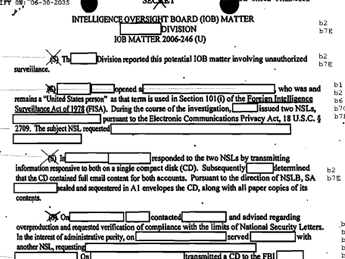



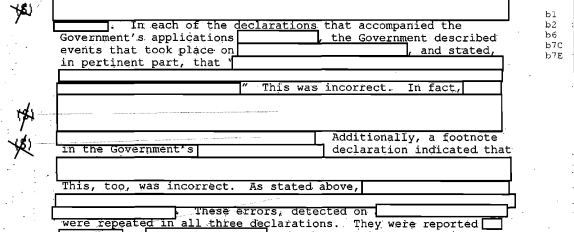

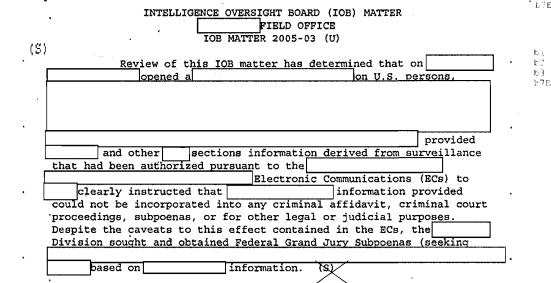
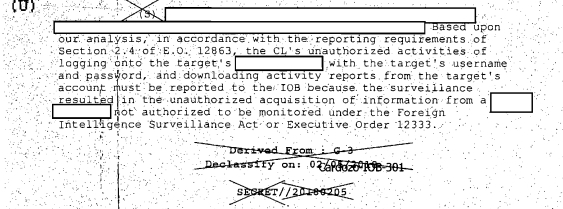


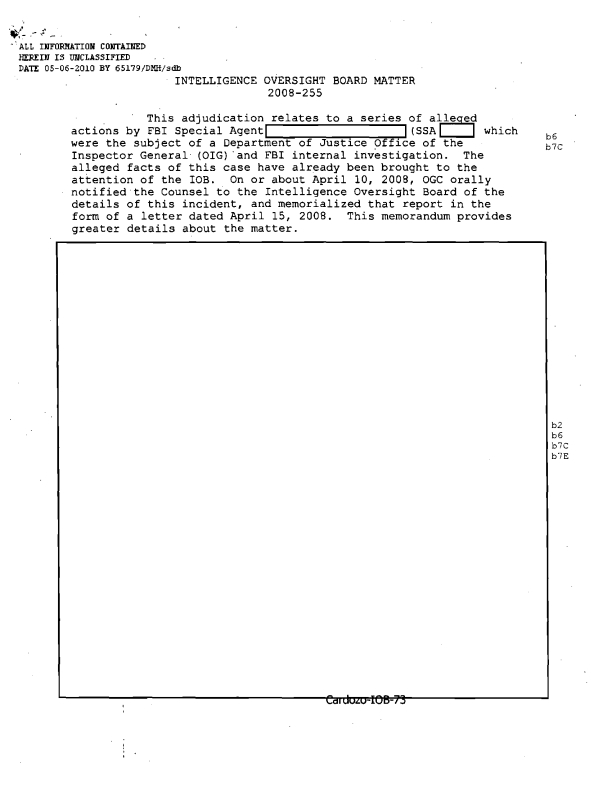
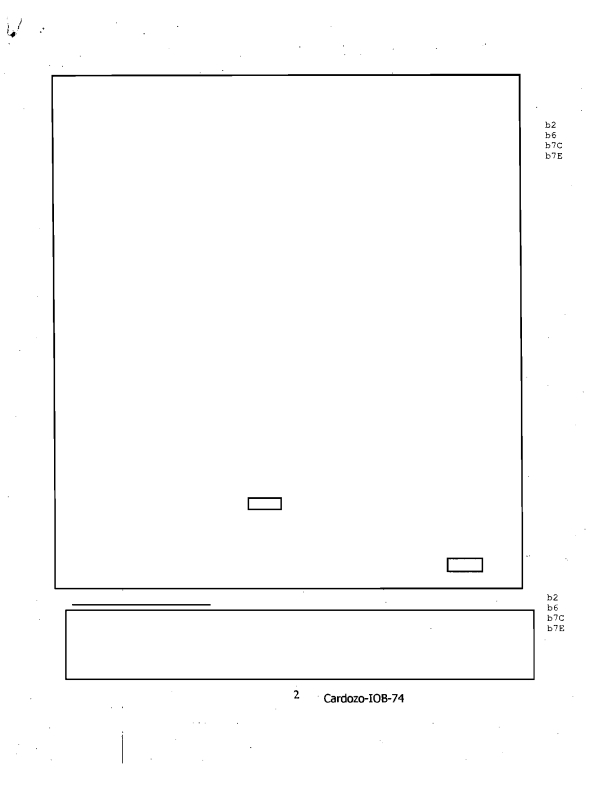

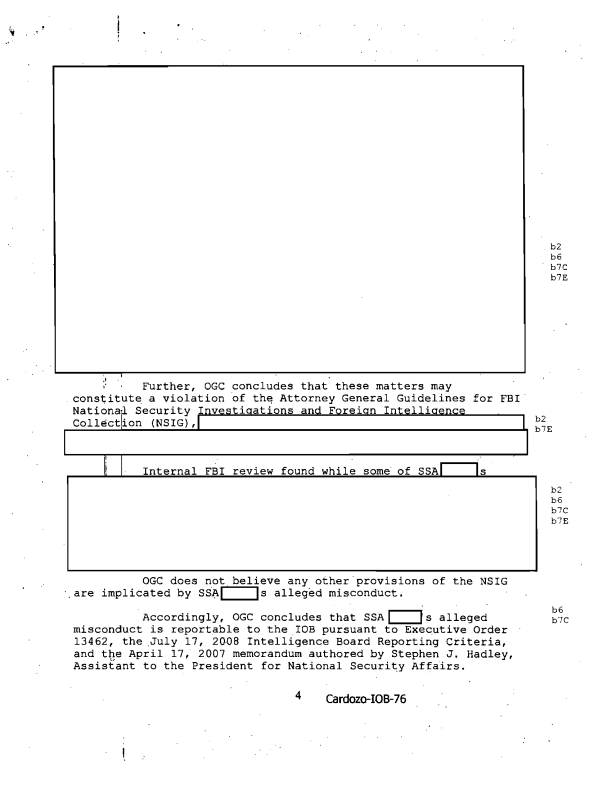
 Want to learn how you can defend free speech, stand up for privacy, fight for government transparency, support consumer rights, and protect your right to innovation in the digital world? Visit http://eff.org/fight to find ways to help.
Want to learn how you can defend free speech, stand up for privacy, fight for government transparency, support consumer rights, and protect your right to innovation in the digital world? Visit http://eff.org/fight to find ways to help.